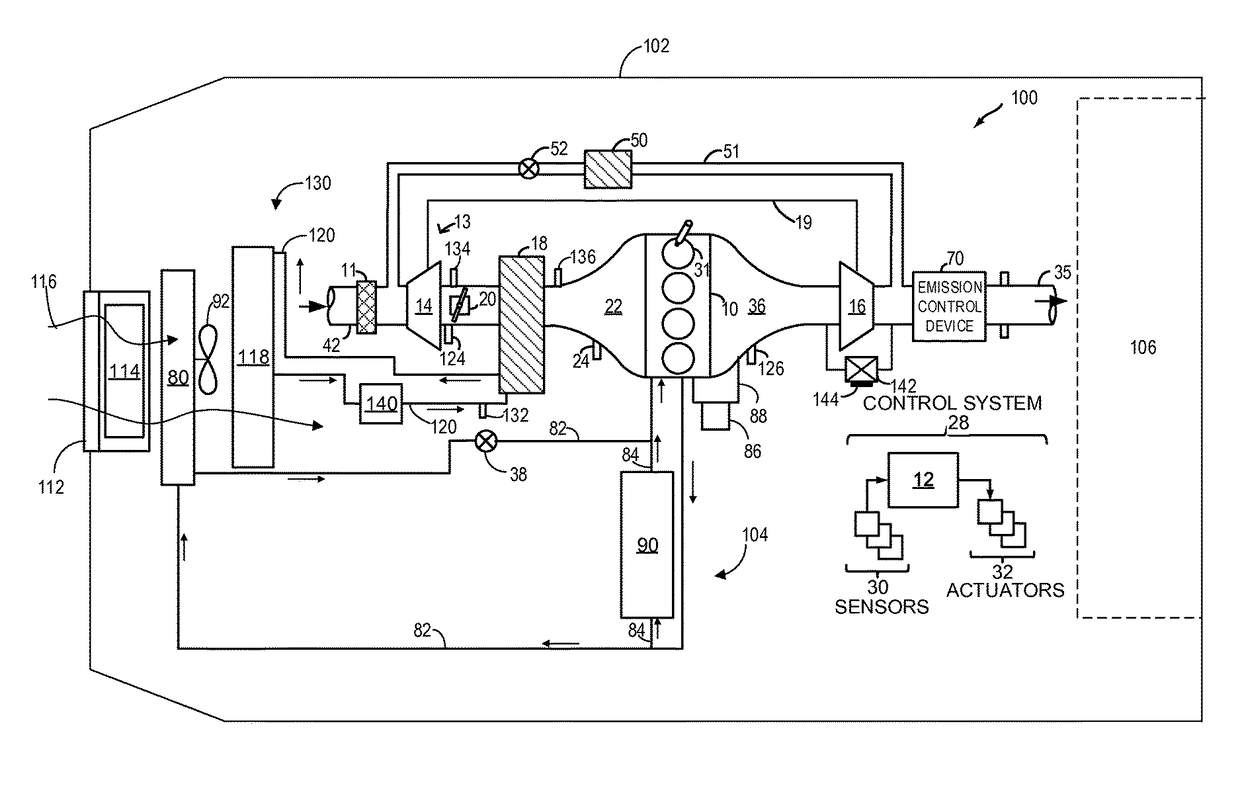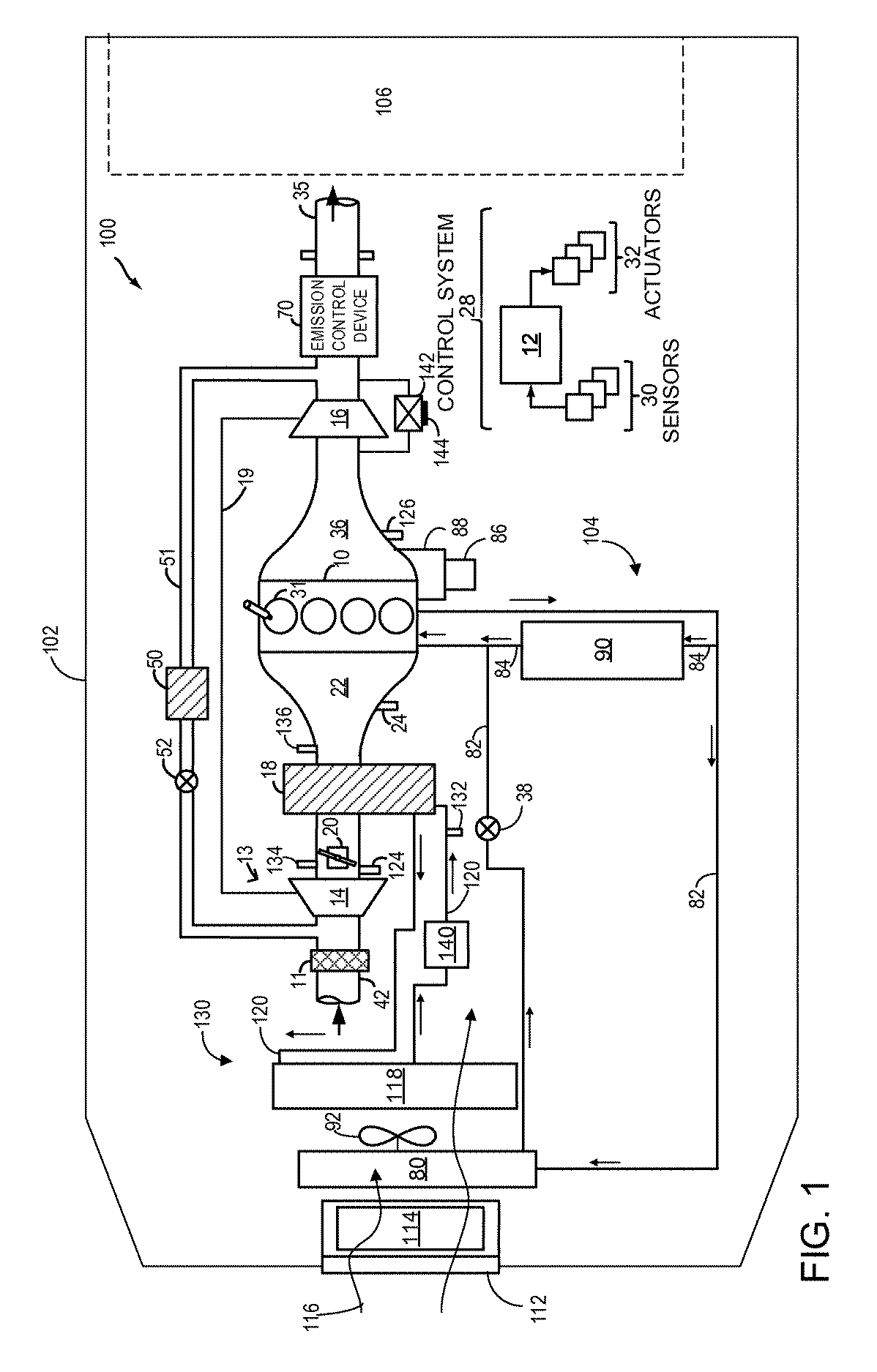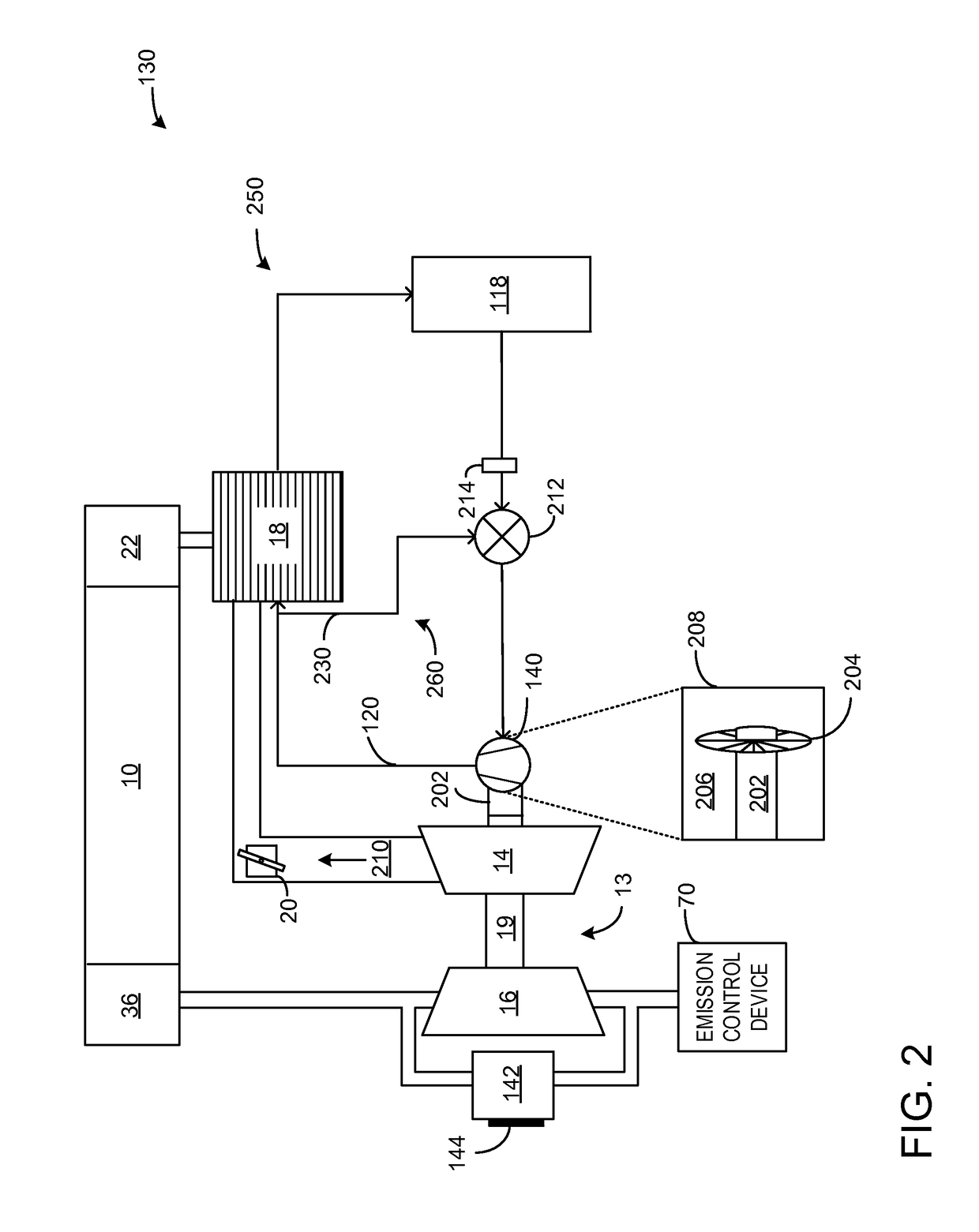System and method for a turbocharger driven coolant pump
a technology of turbocharger and coolant pump, which is applied in the direction of pump installation, machine/engine, mechanical apparatus, etc., can solve the problems of increased engine misfire potential, loss of torque and engine speed, incomplete combustion, etc., and achieves increased air density, increased power, and increased air temperature
- Summary
- Abstract
- Description
- Claims
- Application Information
AI Technical Summary
Benefits of technology
Problems solved by technology
Method used
Image
Examples
Embodiment Construction
[0013]The following description relates to methods and a system for powering a coolant pump to drive a coolant using exhaust gas-driven rotations of a turbocharger. In one example, a coolant pump having an impeller is operably coupled to a rotating shaft extending axially from a compressor side of the turbocharger. As the rotating shaft spins in response to the flow of exhaust gases, the impeller may simultaneously spin, thereby powering the coolant pump to drive coolant into a circuit, such as a charge air cooling circuit, without an additional engine-driven or electrical coolant pump or power source. Thus, charge air cooling may be provided by a CAC in an engine system, such as the engine system shown in FIG. 1. The CAC may be a water-to-air CAC which cools the charge air with internally circulating coolant pumped by a single coolant pump. FIG. 2 illustrates another example of an embodiment of the system, comprising the charge air cooling circuit with a coolant pump coupled to the...
PUM
 Login to View More
Login to View More Abstract
Description
Claims
Application Information
 Login to View More
Login to View More - R&D
- Intellectual Property
- Life Sciences
- Materials
- Tech Scout
- Unparalleled Data Quality
- Higher Quality Content
- 60% Fewer Hallucinations
Browse by: Latest US Patents, China's latest patents, Technical Efficacy Thesaurus, Application Domain, Technology Topic, Popular Technical Reports.
© 2025 PatSnap. All rights reserved.Legal|Privacy policy|Modern Slavery Act Transparency Statement|Sitemap|About US| Contact US: help@patsnap.com



